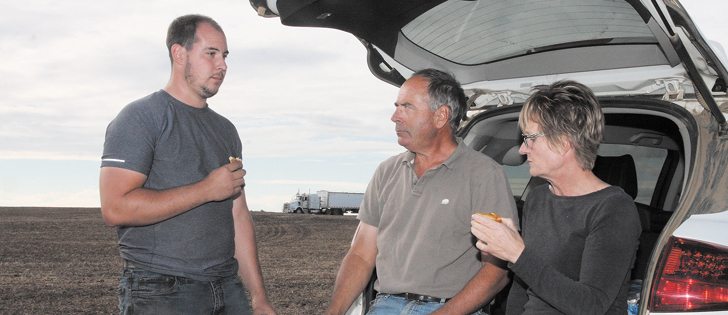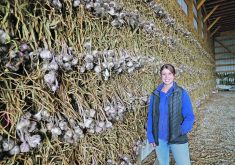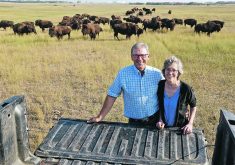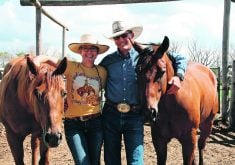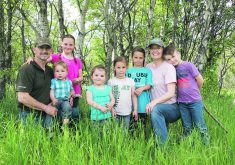WILLINGDON, Alta. — Transportation and trade are the two big issues facing farmers, says the past chair of Cereals Canada.
Greg Porozni, who now serves as the association’s producer representative from the Alberta Wheat Commission, recently saw Russian wheat blended with Canadian wheat on a Singapore-Indonesia trade mission.
“That’s the new norm, it’s not going to be an anomaly. It doesn’t matter how it’s branded or where it comes from,” he said.
“We are not going to have 100 percent of the market share, but a 40 percent share with 70 countries. To me, that’s a win. As long as we’re there, that’s a positive.”
Read Also

Nutritious pork packed with vitamins, essential minerals
Recipes for pork
Russia, where a large crop is expected this year, has a market advantage because of its access to the Black Sea and its opportunity to ship at a lower cost, he said.
In Canada, farmers and grain elevators are accountable for shortfalls and late deliveries, but the railways are not, he added.
“The bottleneck is railways because they are a monopoly, and they can do what they want whenever they want,” Porozni said.
“That’s where we have to build accountability.”
He suggested reciprocal penalties as one solution.
“It’s like a chain. If there’s a broken link, the chain is not going to work properly, so we have got to have this chain working all the time.”
Porozni was first asked to sit on the Alberta Canola Producers Commission for a year when he was 31.
“I felt after that term, I had more to offer,” he said.
That led to serving on the Canadian Canola Growers Association board, the Canola Council of Canada and Cereals Canada.
“We represent farmers,” he said.
“I always do what’s best for the farmer, to increase profitability and sustainability when talking about policy decisions affecting the industry.”
Porozni said these “big picture” groups have made inroads and been improved by having farmers sitting on organizations such as the Western Grain Elevator Association board.
“Grain handlers listen to what farmers said, whereas in past they did their own thing.”
Porozni, a veteran of numerous international trade missions, said they are not as glamorous as they might seem.
“You’re travelling constantly. I had one day off in 15, eight countries in 15 days,” he said of a recent trip.
In addition to 30 years of farming experience at Willingdon, Greg completed both the NAIT petroleum engineering technology and the Lakeland College vocational ag programs.
He considers education a constant process and keeps updated on news, farm technology and trends between meetings.
His other involvements have included the Western Canada Wheat Growers Association, the Agriculture and Food Council and the Alberta Grains Council.
Porozni is content with the contributions he has made and now feels ready to wind things down.
“Why continue on boards if not providing more value?” he said.
“Let someone new come on board and bring fresh new ideas and keep the ball rolling.”



